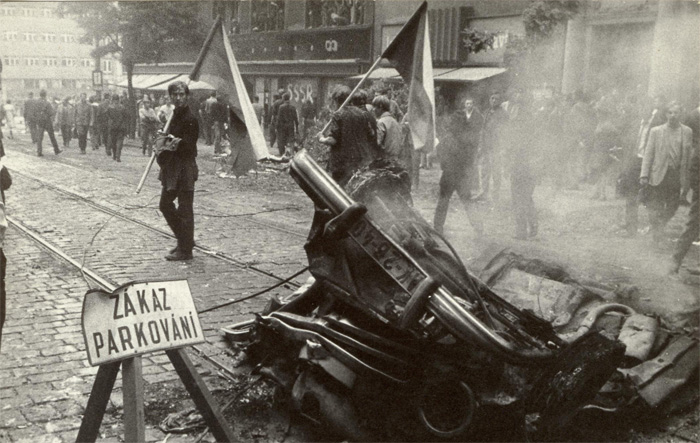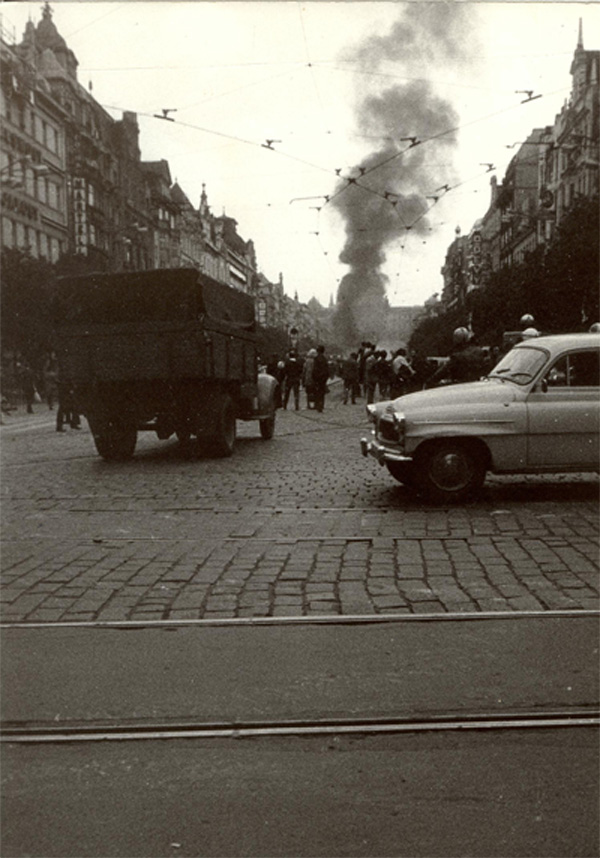Picturing Power: Photographs of the Invasion of 1968 in Czechoslovakia

Jiří Haleš: Invasion of 1968 in Czechoslovakia, © veröffentlicht mit freundlicher Genehmigung
The “Prague Spring” and the following invasion of Soviet, Polish, Bulgarian and Hungarian troops into Czechoslovakia on August 21st, 1968 have been perceived as crucial events – perhaps, in fact, the only widely familiar events – of Czech and Slovak history. Such prominence became possible and constantly perpetuated by the fact that the invasion had been recorded on hundreds of photographs. These images, produced by Czech, Slovak and foreign photographers, both professionals and amateurs, were published in contemporary newspapers and have been re-used in anniversary publications, history textbooks, photograph collections, blogs, exhibitions etc.
Surprisingly, however, they have not yet been analysed in any systematic way. Even in book publications explicitly dedicated to the art of photography and possibly the work of a single photographer, the photographs remain merely illustrations of historic events. They are not acknowledged and interpreted as historical sources of their own right. The photographs, however, both published and hid away in archives, can be seen as complex representations of a state of shifting power. They display the situation as characterized by suppression, desperation and sheer violence, but also of communication, new possibilities and even pride and joy. The aesthetics are intense, but also playful, as they employ symbols of the past, ironic quotations and appeals to humanism. The original language of these images was very flexible and diverse; power appears as an open and contested concept. Only later, in the course of globalization and sometimes iconization of the pictures and with the doubtful privilege of hindsight, the corpus of photographs of the invasion developed into an unambiguous testimony of rigorous suppression.
The project aims in a first step to analyse the photographs and the visual grammar they use – recurring or rather unique symbols, motifs, dynamics and contrasts – and to ask in what ways they represent the brief but intense situation of late August 1968. In a second step, the contexts of publication, perpetuation, remembrance or forgetting need to be investigated in order to learn about the means and strategies employed to construct a tradition of “August 1968”.

Heinz Hosch: 1968, Privatarchiv, veröffentlicht mit freundlicher Genehmigung von Rainer Hosch

Jiří Haleš: Invasion of 1968 in Czechoslovakia, © veröffentlicht mit freundlicher Genehmigung

